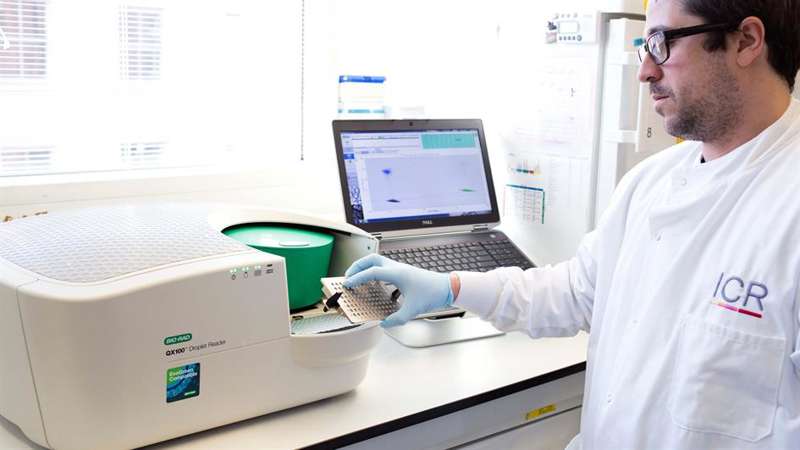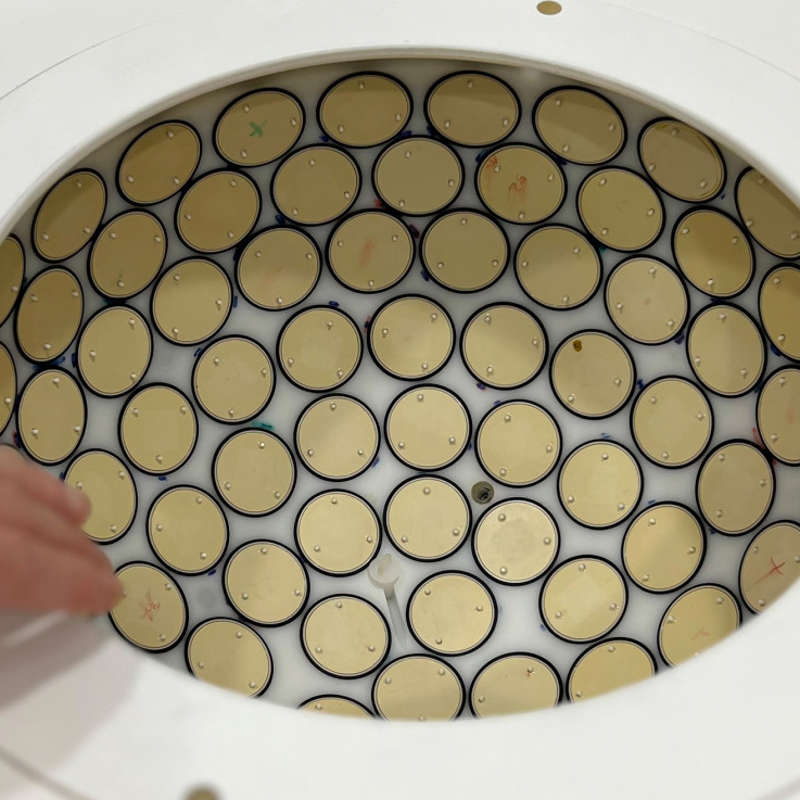This blood test may predict the return of breast cancer

A new type of blood test can predict breast cancer recurrence in high-risk patients months or even years before breast cancer relapses, a new study has found.
The team from the Institute of Cancer Research in London used ultra-sensitive liquid biopsies to detect the presence of small amounts of cancer DNA. which remain in the body after early treatment for breast cancer.
Findings presented at the annual meeting American Society of Clinical Oncology (ASCO) in Chicago on Sunday, June 2, involved testing blood samples from the ChemoNEAR study for circulating tumor DNA (ctDNA) released into the bloodstream by cancer cells.
Detection of residual molecular disease
Researchers from the Toby Robins Center for Breast Cancer Research at the Institute of Cancer Research (ICR) They were able to identify all patients who took part in the study. who later relapsed when very low levels of cancer, known as residual molecular disease, were found in their blood.
ICR scientists hope that by helping to identify patients most likely to relapse, these findings will pave the way to a new treatment strategy. treatment of recurrent breast cancerwhere treatment can begin much earlier, without waiting for an incurable and advanced disease to develop and appear on a scan.


Cancer Research Institute.
Although previous studies have shown that ctDNA blood tests can detect relapses long before they can be seen on a scan, most tests use a method called whole exome sequencing (WES), which focuses on exons, the protein-coding regions of genes, directly related to diseases.
However, the focus of this research, funded by the US company Personalis, Inc., makers of the NeXT Personal test, and the charity Breast Cancer Now, is on whole genome sequencing, known as whole genome sequencing (WGS). This allowed the researchers to identify up to 1,800 mutations.which is much more sensitive and includes more cancer-related changes that can occur in a patient’s DNA.
The results showed that ctDNA detection at any time after surgery or during the follow-up period was associated with a high risk of future relapse and decreased overall survival. Residual molecular disease was found in all 11 patients who relapsed. The median time to clinical recurrence in this group of patients was 15 months, more than three months longer than current data for all types of breast cancer. ANDThe maximum time to clinical relapse was 41 months..
Preventing relapse through early detection
Testing a patient’s blood for the presence of ctDNA will allow doctors to diagnose the return of cancer at a very early stage. However, more research and testing is needed before this can be demonstrated. Could detection of residual molecular disease guide future therapy?.
Ongoing studies, such as the TRAK-ER study at The Royal Marsden, are using a different molecular test to detect ctDNA and predict recurrence in patients with estrogen receptor (ER) positive breast cancer. This study examines the possibility of preventing relapse in patients with residual disease by changing treatment.
Early detection is one of the greatest allies in the fight against breast cancer. In Spain, About 6,000 women die each year from metastatic breast cancer.. With advances like these, it becomes critical to stop the loss of life from this devastating disease.


